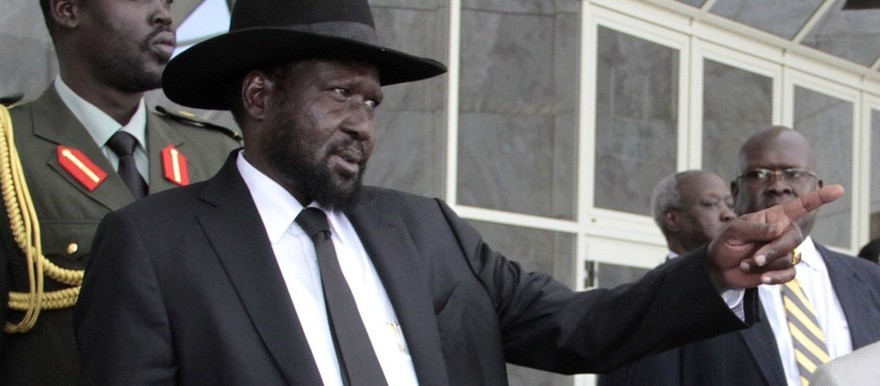The Council of Ministers has announced their decision to suspend the South Sudanese government’s participation at the peace talks in Addis Ababa with the armed opposition leadership, led by former Vice-President Riek Machar. It requested President Salva Kiir not to travel to Ethiopia, despite mounting global pressure on him and Machar to reach their deal by Monday 17 August, and international threats of sanctions.
The acting caretaker Governor of Northern Bahr el Ghazal State, Salva Chot Ayat, confirmed in an interview with Radio Tamazuj from Juba that the Governors’ council has passed a resolution asking the Council of Ministers to withdraw the government’s team of negotiators from the talks, “until the rebels have sorted out their differences”.
The reason for withdrawal of the government team, according to the Cabinet Affairs Minister Martin Elias Lomoro, is that Juba wants confirmation from the mediating Intergovernmental Authority on Development (IGAD) whether rebel leader Riek Machar is still in charge of the SPLM-In Oppostion. At a briefing to journalists that followed the cabinet’s meeting today, Lomoro stressed that former rebel commanders Peter Gatdet and Gathoth Gatkuoth and a group of other senior officers said they “disowned” Machar and broke away.
Last Tuesday, the former commanders accused Machar of seeking power for himself, and added that they would not recognize any deal he agreed on. Machar reportedly arrived in the Ethiopian capital yesterday.
If the president is going to go to Addis Ababa, Lomoro said after the meeting on Friday, “he must go with clear mind as to who he is going to meet and negotiate with.” Governors of the ten states were also attending the meeting in Juba to consult with President Salva Kiir.
Lomoro told reporters that they first want to be briefed by the returning chief negotiator, Nhial Deng Nhial, and stakeholders “on what they have reached so far in the talks.”
The IGAD mediators, backed by US President Barack Obama during his recent visit to Ethiopia, gave Kiir and Machar until August 17 to agree on a peace deal. The so-called IGAD-Plus formation (including the United Nations, African Union, China and the ‘troika’ of Britain, Norway and the United States) drafted a compromise agreement for the parties.
Proposed was for the warring parties to share power in a transitional government, with the current ruling party maintaining a majority stake in the national government. In the three state governments of Jonglei, Unity and Upper Nile, the mediators proposed that the SPLM-IO takes a greater share of power. Reports emerged this week that the parties strongly disagreed on other points as well, including the demilitarization of Juba.
International sanctions
Obama has warned Kiir and Machar that if they failed to strike a deal coming Monday, the US will “move forward with a different plan, and recognize that those leaders are incapable of creating the peace that is required.”
Louis Lobong, Governor of Eastern Equatoria, dismissed the threat of sanctions. “In peace talks, you don’t give condition, you don’t give intimidation,” he told reporters. “Bringing about peace is a process, requires time and is expensive – and it is better to go slowly but surely, rather than rush and sign a peace that will create problems.”
Cabinet minister Lomoro rebuked uttered by the IGAD’s chief mediator, Seyoum Mesfin, that negotiators will not be allowed to leave the venue of the talks in Addis Ababa without signing a peace agreement on 17 August.
“We feel this is not the attitude and a language of a mediator, but a language of somebody who has bad intentions for the Republic of South Sudan,” Lomoro said.
(AFP, Sudan Tribune)
Photo: South Sudan President Salva Kiir gestures as he leaves the peace talks in Addis Ababa on March 6, 2015 (Reuters)
Related:
SPLA-IO defectors confirm formation of new rebellion (14 August 2015)




